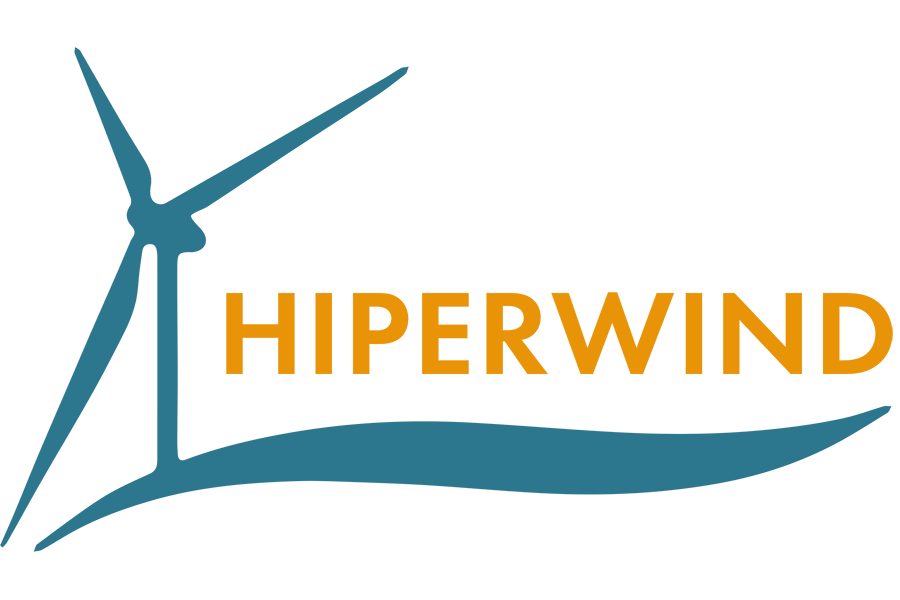HIPERWIND
(HIghly advanced Probabilistic design and Enhanced Reliability methods for high-value, cost-efficient offshore Wind)
Offshore wind turbines experience higher wind speeds and strong ocean currents than onshore wind turbines, and thus must be designed to withstand much greater loads. These tougher design standards result in much higher capital costs, particularly balance-of-plant costs. Although offshore wind turbines typically access higher wind speeds than onshore wind, and thus can typically generate more energy, these higher capital costs contribute to a high levelized cost of electricity (LCOE). The LCOE of offshore wind generation has decreased significantly, by 65% between 2017 and 2023, but this decrease is largely due to the industry maturing and larger plants.
HIPERWIND aims to further decrease LCOE by at least 9%, through reductions in uncertainty of load, reliability, and degradation simulation models. Focuses of HIPERWIND research include the improvement of atmospheric boundary layer modelling, modelling of the structural response of wind turbines to aero-and hydrodynamic loading, and the development of mathematical models for structural reliability. Several published reports have detailed results of these investigations, such as D2.3, Environmental joint probability distributions and uncertainties, and D3.2, Turbine loading and wake model uncertainty. These results inform the development of a modelling framework to estimate the effect of environmental and operating conditions on wind turbine reliability, a risk-based model for devising financial risk minimising O&M strategies, and a cost uncertainty propagation model that will compute uncertainties in power production, fatigue life, and LCOE.
EPRI Europe participation
HIPERWIND tasks led by EPRI Europe include the creation of an electromechanical simulation model to assess the impact of electric grid events on wind turbine component lifetime, and the assessment of HIPERWIND development impacts on offshore wind LCOE.
EPRI Related Programs

Duration
Funding Programme
Grant Agreement
Website
https://www.hiperwind.eu/
